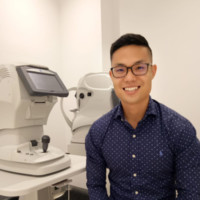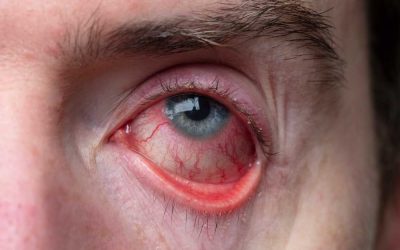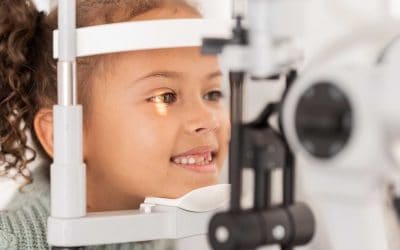How often we need an eye examination depends on age, overall health, and existing eye conditions. Paediatricians recommend our first eye exam at around six months, then at age three, and again before starting school. After that, every one to two years unless otherwise advised by an eye care professional. For adults with no known vision problems, a comprehensive eye exam every two years is recommended.
However, if you wear glasses or contact lenses, have a family history of eye diseases, or have certain health conditions like diabetes, more frequent exams are necessary. Annual exams are often advised after age 40, especially if there are risk factors or symptoms of eye disease.
The risk of eye diseases like glaucoma, cataracts, and age-related macular degeneration increases as we age. For those over 65, yearly eye exams are suggested.
It’s important to follow the advice of your eye care professional regarding the frequency of examinations, as they can tailor recommendations based on your individual needs and risks. If you notice any changes in your vision or experience eye discomfort between exams, don’t hesitate to schedule an appointment sooner. The team at Beyond Eyecare takes a holistic approach to optometry, seeing every patient as a whole and not just treating a symptom, and will help you through any of your eye care concerns.
What Do Eye Examinations Look For?

Eye examinations are comprehensive assessments of your vision and overall eye health. During an eye exam, your eye care professional will perform several tests and evaluations to assess various aspects of your vision and eye health. The Beyond Eyecare clinic is updated with the latest diagnostic equipment, enabling us to discover any signs of eye disease or damage in its earliest stages. Early detection and diagnosis can prevent further damage, deterioration and loss of vision.
In most eye examinations they will look for;
- Visual Acuity: This test measures how well you can see at various distances with an eye chart. It helps determine if you need corrective lenses and assesses the clarity of your vision.
- Refraction: This test determines your eyeglass prescription if you need corrective lenses. It helps correct nearsightedness, farsightedness, and astigmatism.
- Eye Movement and Alignment: Your eye movements and alignment are checked to ensure your eyes work together properly. This evaluation helps detect strabismus (eye misalignment) or amblyopia (lazy eye).
- Eye Pressure: A test called tonometry measures the pressure inside your eyes. Elevated eye pressure may indicate glaucoma, a serious eye condition that can lead to vision loss if left untreated.
- Peripheral Vision: Testing your peripheral vision assesses your ability to see objects and movement outside your direct line of sight. Loss of peripheral vision could indicate conditions like glaucoma or retinal disorders.
- Eye Health Examination: Using instruments, your eye care professional examines the external and internal structures of the eyes. They’ll look for signs of eye diseases like cataracts, macular degeneration, diabetic retinopathy, and retinal detachment. They may also evaluate the health of your optic nerve and the blood vessels in your retina.
- Colour Vision: Tests for colour vision deficiency (colour blindness) assess your ability to distinguish between different colours. This can be important for specific occupations and may indicate underlying eye health issues.
- Pupil Response: Your eye care professional will check how your pupils respond to light. Abnormal pupil responses can indicate neurological problems or other eye conditions.
- Personal and Family History: Your eye care professional will ask about any or family history of eye diseases or conditions to assess your risk factors and guide further evaluation or treatment.
There is no reason to fear an eye examination or any associated tests. These evaluations play a crucial role in safeguarding your vision and eye health. By undergoing these tests and assessments, eye care professionals can identify various vision problems, detect eye diseases at their earliest stages when most treatable, and provide appropriate interventions to preserve your vision and overall eye health.
Regular eye exams are essential for maintaining optimal vision and overall well-being. They allow eye care professionals to monitor any changes in your vision, assess your eye health status, and intervene promptly if any issues arise. Early detection of eye diseases such as glaucoma, macular degeneration, and diabetic retinopathy can significantly increase the effectiveness of treatment and minimise potential vision loss.
Comprehensive eye exams can uncover underlying health conditions like diabetes, high blood pressure, and even certain types of cancer, as the eyes often reflect systemic health issues. Examinations help protect your vision and contribute to your overall health and well-being. By scheduling regular eye exams, you invest in your vision and ensure a brighter, healthier future for your eyes. Book an eye examination with Beyond Eyecare today!

Therapeutical endorsement





